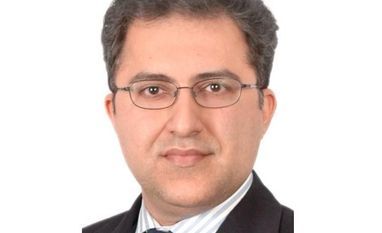Whether it was serving as the sole advisor to Chrys Capital for its $30 million investment in co-working space Awfis Space Solutions, or overseeing the acquisition of fitness chain Fitness First India by Cult.fit, Maple Capital Advisors founder Pankaj Karna has a keen eye for businesses focused on fragmented markets.
Prior to Maple, Karna was partner and head of mergers and acquisitions, Lead Advisory at Grant Thornton in India before starting his own venture in 2010.
“We started bootstrapped, but were encouraged by high-quality clients that continued to engage with us. Our first transaction was a listed company M&A-Orient Bell acquisition by Bell ceramics, and though we were only a handful of people, we were able to execute it successfully utilising relationships and partner merchant banks. We were courted to merge with a larger Investment bank in initial years, which we resisted and faced significant attempts by the competition to poach our clients. But in the end, we held on to our own successfully,” Karna says.
Maple Capital Advisors is a New Delhi-based investment bank focused on the Indian mid-market advisory space.
A Masters in Business Administration from McGill University, Canada, Karna is known for his keen eye and established track record in financing M&As in India involving emerging and large corporate entities across several sectors.
He is also an active early-stage investor in start-ups, and speaks with an evident passion about his role and how the start-up landscape has shaped up in the country.
"At this point, we are looking at strong IPR (intellectual property rights)-backed ideas, or businesses focused on fragmented markets. We look for passionate, sharp entrepreneurs, ideally with some experience, and we engage at idea conception stage," says Karna.
Acknowledging that the credentials of the founder are important in deal making, he focuses more on the clarity of thought and the passion and motivation of the entrepreneur while making investment decisions.
Karna is good at golf, has an avid interest in nature, trekking and photography, all hobbies that help him build focus and understanding of his investment deals and decisions.
“Perseverance, focus, broadening one's horizon, creative thinking, paying attention to detail come in various forms when playing golf, doing photography -- especially nature photography-- or trekking. All these are very relevant to our business,” he says.
Maple has investments in start-ups such as Max Wholesale, a mobile-based business-to-business grocery supply-chain platform that raised about $1 million in a pre-Series-A funding round led by Indian Angel Network (IAN) and Maple Capital Advisors in 2017.
Other investments include Delhi-based NOW, which operates in the hyperlocal delivery space and focuses on last-mile delivery in sectors such as food, non-food and beverage drug chains and niche players like the flower-selling firm, Ferns & Petals.
"Both Max Wholesale and Now Hyperlocal logistics have performed well, through scale up and successful follow on funding, creating the right unit economics and on verge of meaningful A rounds," says Karna.
While Maple focuses on providing cross-border and domestic access for strategic opportunities and growth capital backed by strong corporate and institutional relationships, sector and product knowledge, Karna keeps a keen eye on how young firms are operating and making money in the start-up space in India.
He believes the start-up investment landscape in India is becoming more rational, and there is much more organisation in the space through angel networks and early-stage funds.
When asked how he looks at the WeWork example, where the IPO plan crashed, and the founder Adam Neumann had to quit because of the unjustifiable valuation of the shared office space start-up, and India’s learnings from it, Karna had a measured, practical answer.
"We have always believed that valuations are driven by fundamentals and sooner or later the market will attest that. So start-ups that don't show fundamental economic performance while continuing to grow irrationally are likely to see a sharp value correction and/or limited investor appetite," he says.
In the future, he thinks health food, electric vehicle technology and fragmented markets that can be consolidated with a full stack approach are the areas that investors should watch out for.
Maple hasn’t yet invested in these ideas, but Karna says, “We are keen to explore the right opportunity in these segments as they look very promising now. We have looked at businesses in these areas but thay have been somewhat larger than our entry point..hence we continue to explore.”
However, he believes that as an investor, his role is not just limited to providing capital.
"In the early stages that we enter, we drive discipline of compliance as a safeguard and (insist on) the adoption of right business practices that ensure bankability and investment appetite for follow-on rounds," he adds.
As an example, both Max and Now have a full-stack tech approach to business. They have done away with cash transactions and have tight accounting controls.
Unlock 30+ premium stories daily hand-picked by our editors, across devices on browser and app.
Pick your 5 favourite companies, get a daily email with all news updates on them.
Full access to our intuitive epaper - clip, save, share articles from any device; newspaper archives from 2006.
Preferential invites to Business Standard events.
Curated newsletters on markets, personal finance, policy & politics, start-ups, technology, and more.
)